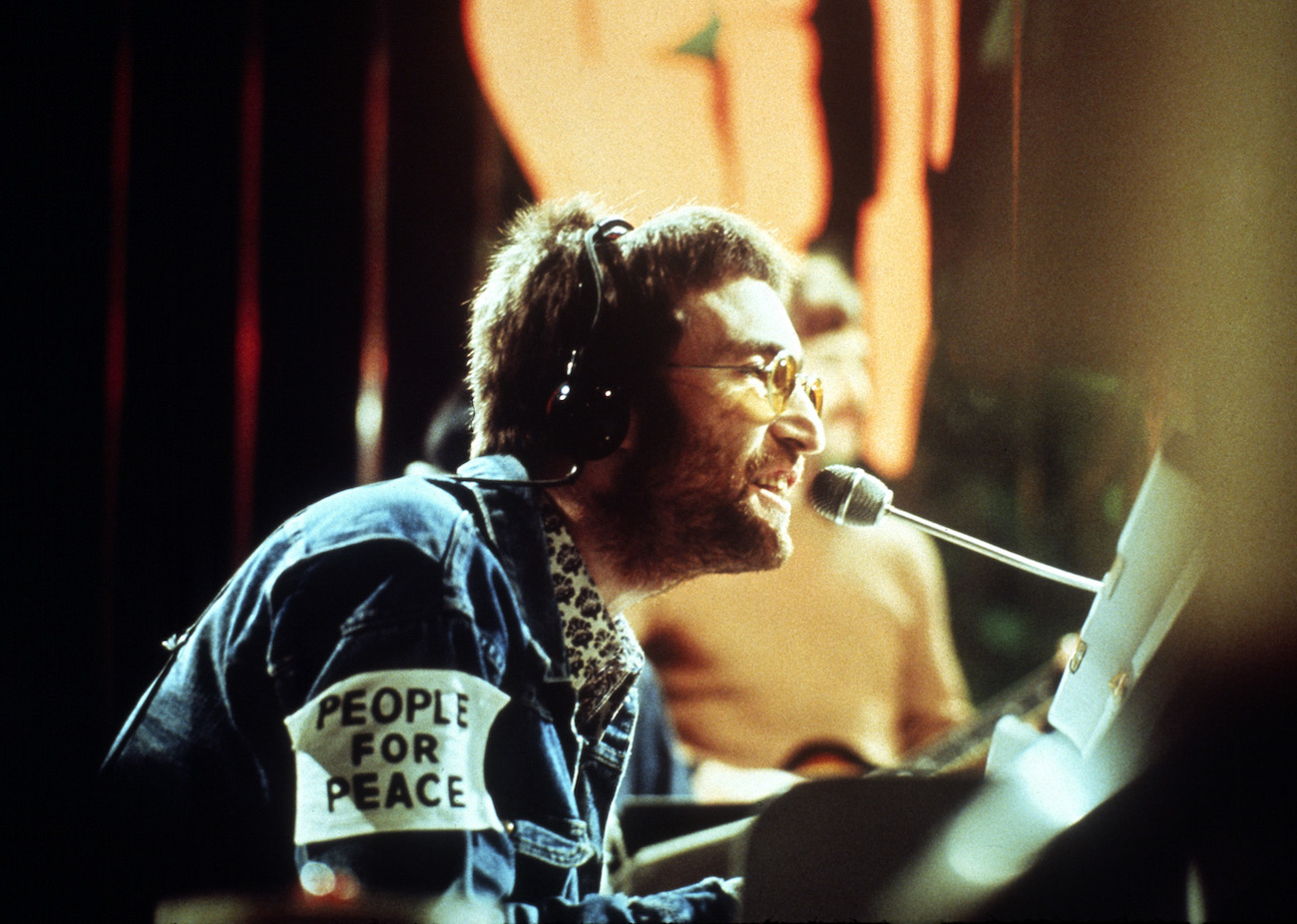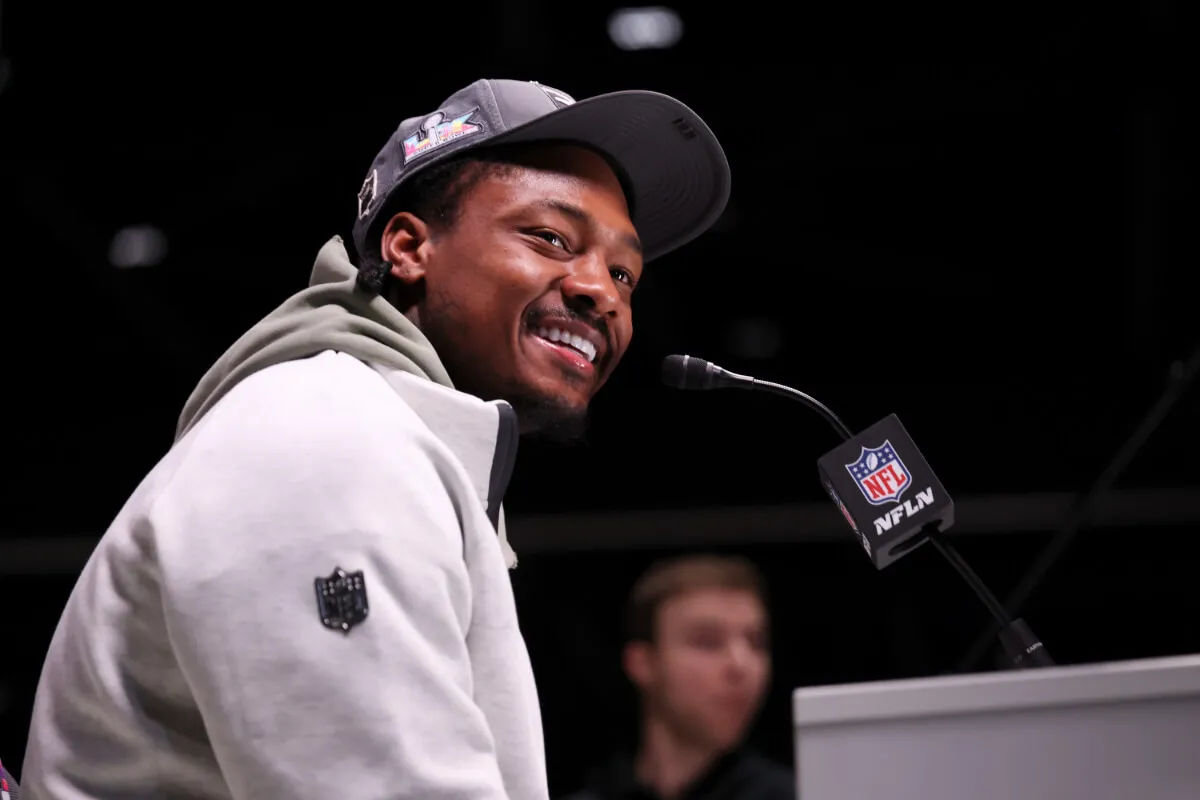Did President Nixon Really Ask Elvis Presley to Spy on John Lennon?
John Lennon wasn’t the best of friends with those in Washington D.C. Ever since he released his song “Give Peace a Chance” in 1969, an anti-war anthem, John was on the FBI watch list. President Nixon made John’s life miserable for the next three years as he fought to have the musician deported from the country.
However, new developments in the story have just surfaced, proving that another musician could have been helping Nixon in his fight against John all along, Elvis Presley. Elvis once told Nixon that The Beatles were “anti-American.” But is that enough evidence that Nixon made him a spy?

John Lennon and President Nixon’s feud
Toward the end of his days as a Beatle, John made his thoughts known about the Vietnam War and other global issues. Songs like “Revolution” and “Come Together” sent a clear message. However, John was free to pen all the anti-war songs he wanted when he left The Beatles.
Straight out of The Beatles, he wrote “Give Peace a Chance,” which took off at anti-war demonstrations and protests. President Nixon and the FBI started watching him closely after that. The protest songs and the songs about peace didn’t stop. John released Imagine in 1971, and the titular track almost became as big as “Give Peace a Chance.”
When the FBI gave a 10-year sentence to poet, activist, and MC5 manager John Sinclair for possession of two marijuana joints, John wrote a protest song named after Sinclair in 1972. He performed the song at a rally, and FBI agents were in the audience.
The song didn’t help John. It angered Nixon even more. The president put him under surveillance, watched his every move, and started a silent battle to have John deported. If John could sway the newly-turned 18-year-olds in the country who were about to vote in Nixon’s re-election, John had to go. He was a threat.
Nixon was re-elected, yet the case against John raged on, even though the ex-Beatle had already begun to tune down his activism for fear he’d be deported. However, when Nixon later resigned in 1974, John’s battle with Washington D.C. ended. John received his green card in 1976.
President Nixon might have asked Elvis Presley to spy on John Lennon
New reports from presenter Bob Harris, claim that President Nixon allegedly asked Elvis Presely to spy on John. Harris shared his story during a recent appearance on the Rockonteaurs podcast (via the Independent).
“It sounded like it was almost a figment of [Lennon’s] imagination when he was saying, ‘My phone was tapped, I get followed everywhere,’ but it was true. He really did,” Harris said. “Nixon was out to get him and that’s why John was stuck in New York, or stuck in the States: he knew, were he to come back to the UK, he’d never get back into America again. Not while Nixon was in the White House.”
As for Elvis’ involvement, Harris said, “Nixon was a great friend of Elvis and vice versa. Nixon had [asked] Elvis to gather as much information about John Lennon as he possibly could.” Harris continued to explain that, by that point, John and Elvis had formed a hateful relationship with one another.
“For John, it was a very disillusioning moment because he loved Elvis’s records, so to discover he was a right-wing southern bigot was a big shock,” Harris explained. “Equally, Elvis saw Lennon as being this upstart Liverpuddlian know-it-all who’d taken his crown. He usurped Elvis and he was resentful as hell.”
Harris’ claims might be exaggeration
The Guardian claims that some of Harris’ statements are exaggerations. Nixon did meet with Elvis at the White House at the time, but to say that they were great friends could be a little dramatic. At their meeting, Elvis was apparently trying to get Nixon to give him a Federal Bureau of Narcotics badge. Notes taken at the meeting read that Elvis “thought the Beatles had been a real force for anti-American spirit.”
Another report said, “He is of the opinion that the Beatles laid the groundwork for many of the problems we are having with young people by their filthy unkempt appearances and suggestive music.”
Elvis couldn’t have wanted the badge so he could be Nixon’s watchdog, though. He wanted the badge for his own reasons. According to Priscilla Presley, Elvis “could legally enter any country both wearing guns and carrying any drugs he wished” with the badge.
However, the conspiracy theory that Elvis faked his death doesn’t help the theory that Elvis could have been a spy. Many believe he faked his death “to enter a witness protection programme after helping the FBI infiltrate an organised crime syndicate.”
The only thing that would convince us that Elvis was a spy is evidence that he positioned himself around John at the time. For most of the 1970s, Elvis toured on the other side of the country. Elvis’ connection to Nixon is fishy, but it doesn’t necessarily make us believe they were in cahoots either.


